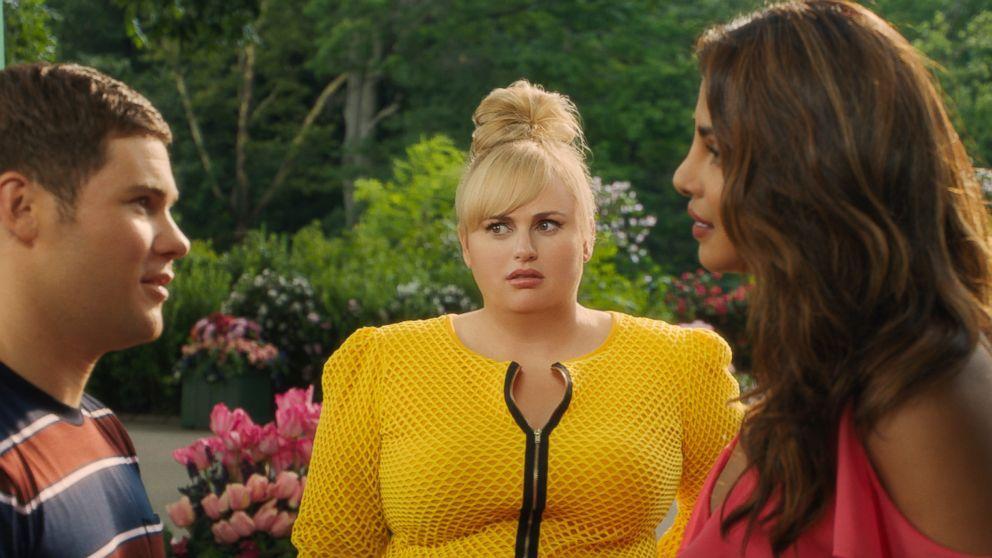Isn’t It Romantic sets up the perfect rom-com character in Natalie (Rebel Wilson), someone whose cynical perception of love and lack of self-esteem blind her to her talent and self-worth. However, Isn’t It Romantic director Todd Strauss-Schulson quickly makes clear that this film isn’t a traditional rom-com, but rather will mock the tropes which make these films so cliché. The effect is a satirical rom-com which successfully makes the audience feel uplifted but doesn’t fall prey to that misleadingly presented rom-com world.
Natalie is knocked unconscious after being mugged and wakes up to find herself in a New York transformed into an (as she puts it) ‘unbearable romantic world’. She is shocked to discover the streets of her city are clean, guys actually look her in the eye and believe she is beautiful and ‘beguiling’, her neighbour has turned into the stereotypical gay best friend, and her female work colleague is suddenly her mortal enemy. By exaggerating these rom-com clichés, with their dubious views on gay stereotypes and relationships between women in the workplace, Isn’t It Romantic manages to subvert the rom-com genre.
By the end of the film Natalie has found the confidence to not let others get in the way of furthering her career aspirations and discovered a love for her friend Josh (Adam DeVine). Natalie’s character development is brought about by the revelation that to leave ‘the matrix for lonely women’ she doesn’t have to get the perfect guy to fall in love with her, but rather to learn to love herself.
The idea of self-love is set up from the opening scene of the film, where we see Natalie as a young girl being told by her mother to ‘look in the mirror, darl. We’re no Julia Roberts.’ At this age Natalie’s perceptions of love have not yet been impacted by the pressure of society telling us we’re not good enough, not worthy of a love as epic as those portrayed in rom-coms. The effect of this moment is seen to completely shape the person Natalie grows into. The ‘I’m not special’ attitude we see her suffering from for most of the film is something which is firstly very relatable to us as the audience and secondly something which has to be overcome in order for her to find happiness.
The ending of the film therefore preaches self-acceptance which cannot be interpreted as anything but empowering. In a world where so many rules are placed on us to conform, this witty rom-com ultimately celebrates the self and reminds us all to find the love in all our definitely-not-perfect lives.
By Eve Clark
Image courtesy of Variety

